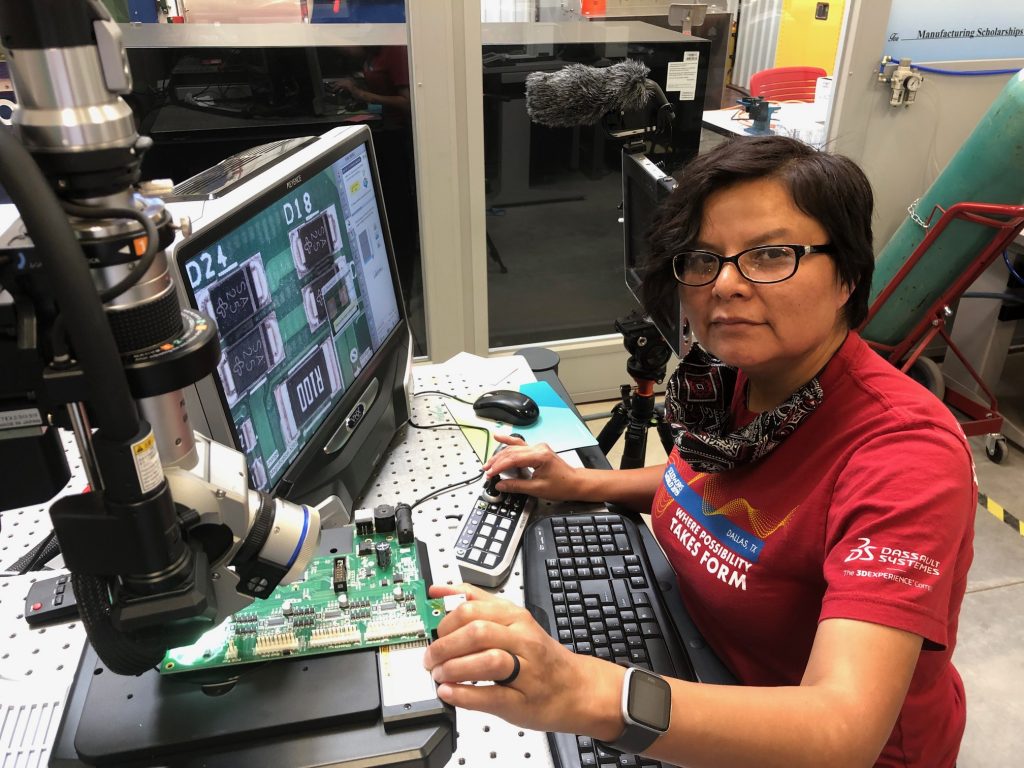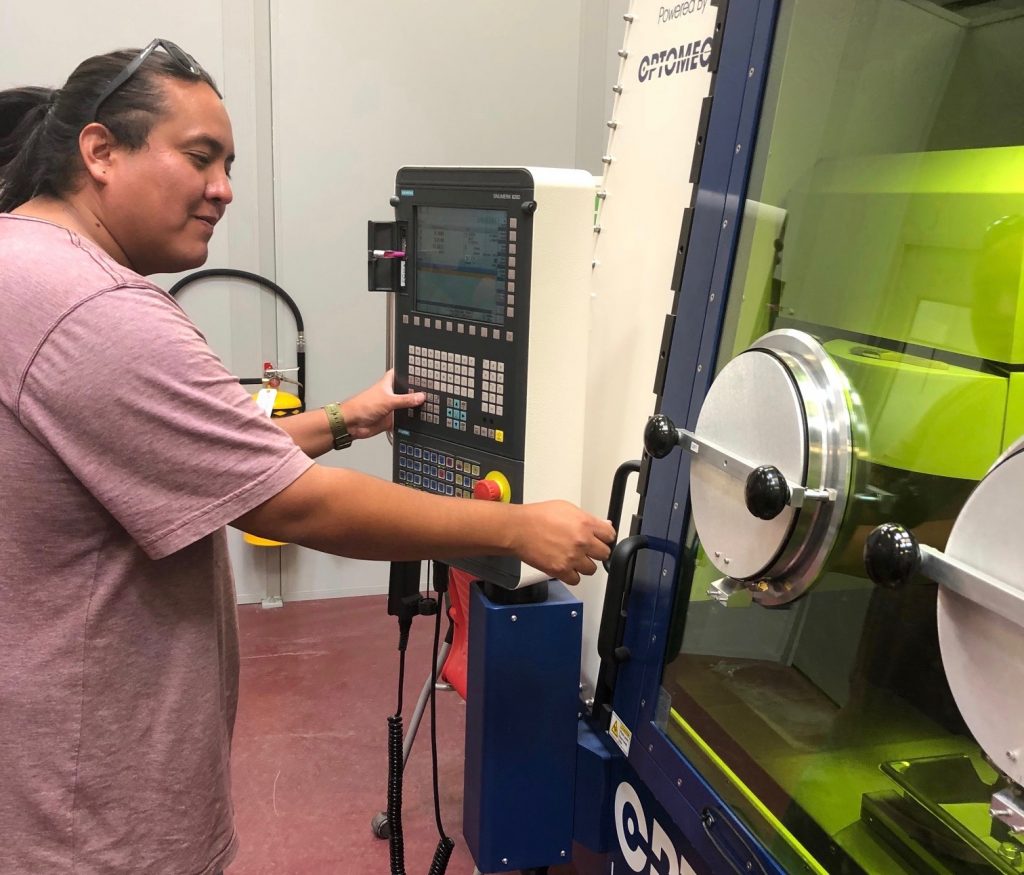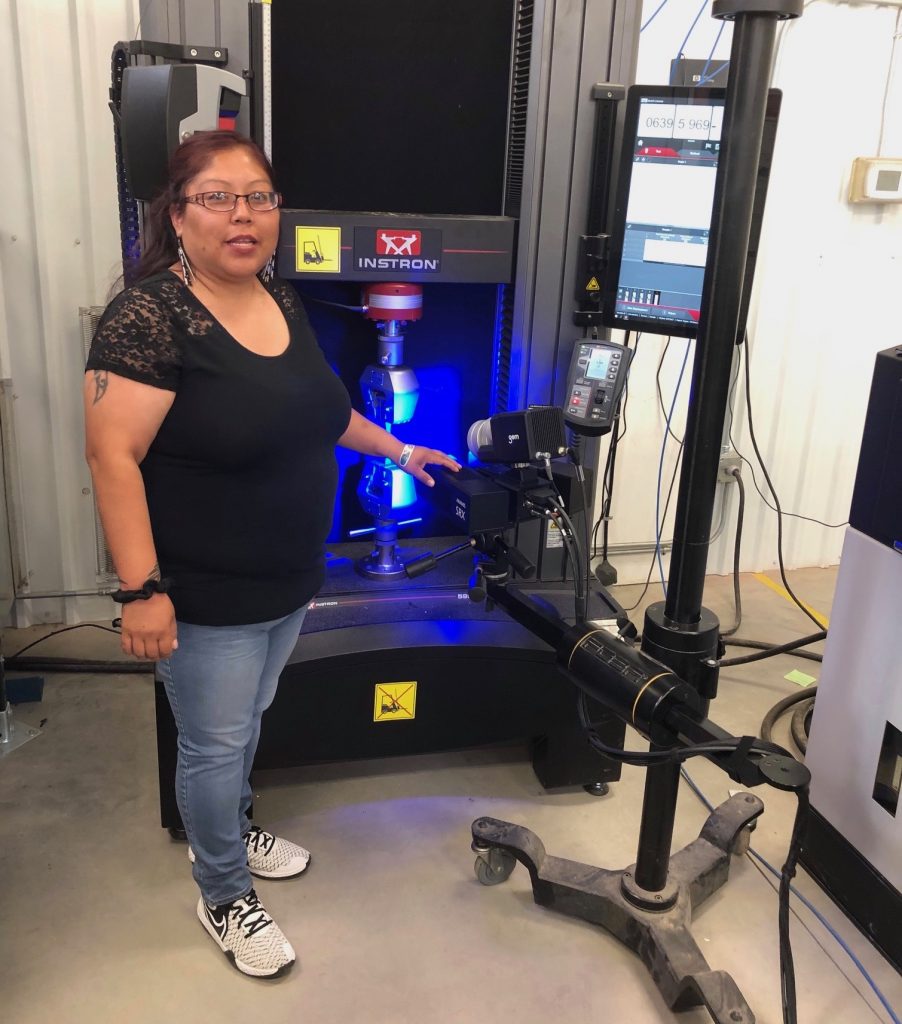In Navajo Technical University’s Advanced Manufacturing Summer Institute, the learning is virtual, but the results are 3D
By Paul Boyer

The hazards of online teaching are, by now, well known. Virtual lectures are tiring, class discussions are harder to sustain, internet access might be unreliable, and Zoombombers can wreak havoc on an otherwise congenial gathering.
But those who teach additive manufacturing—commonly known as 3D printing–face another and even more obvious dilemma: How can essential skills be taught when students don’t have access to the technology that it at the heart of their discipline?
This was the challenge facing Navajo Technical University as it prepared to host this year’s Advanced Manufacturing Summer Institute. Now in its fourth year, the program was originally developed as a residential experience, offering students from tribal colleges across the country an opportunity to learn the fundamentals of 3D manufacturing.
Funded by the National Nuclear Security Administration (NNSA), the institute began as a collaboration between several tribal and mainstream institutions, including Southwest Indian Polytechnic Institute (SIPI), which hosted the first institute, and the University of Nebraska, which served as host in 2018 and 2019.
In previous years, students from participating institutions—including Salish Kootenai College, Cankdeska Cikana Community College, Turtle Mountain Community College, and Bay Mills Community College—traveled to the host campus, worked with instructors, met with guest speakers, and learned to operate the complex manufacturing and testing equipment used to create objects out of polymer and metal.
But as campuses began closing in March and travel was restricted on reservations nationwide, it was clear that Navajo Technical University, the designated host for the 2020 summer institute, would need to develop a different approach. Their solution shows just how much can be accomplished virtually, even in disciplines that depend on collaboration and use of highly specialized equipment.
NTU’s summer institute shows just how much can be accomplished virtually, even in disciplines that depend on collaboration and use of highly specialized equipment.
This year’s institute, with sixteen tribal college students participating, began June 15 and will continue until the middle of August. Like previous years, students gather each morning—now via computer–to view demonstrations by instructors and guest presentations by industry representatives, said Scott Halliday, director of the university’s Center for Digital Technologies.
Shifting this part of the program to an online format was not especially difficult—and even offers some advantages for students. For example, when the operation of equipment is being demonstrated, students don’t need to crowd around, angling for a good view. On video, “everyone has an equally good seat,” Halliday said. And because presentations and demonstrations are recorded, they are available for repeat viewing.
More challenging was providing the experience of actually manufacturing a product. In prior years, students were taught how to operate sophisticated polymer and metal 3D printers, as well as other equipment that measures the integrity of the materials created. All of this would have taken place in NTU’s expansive center. Via Zoom, Halliday provided a virtual tour of the campus facility, chockablock with printers, x-ray machines, computers, and tensile testers—much of it massive, all of it imposing in its complexity.
Unable to bring students to the NTU campus, the university found a way to approximate the hands-on experience of using all this equipment. Instead of actually operating the printers and testing equipment, students direct the operations from a distance by providing instructions to NTU interns working in the lab. Linked by video, students “run” the machines by telling the interns which buttons to push.
The interns are students in NTU’s ABET-accredited four-year engineering program. All know their way around the equipment, but they are instructed to let the summer institute students take charge. This means, Halliday said, that they even allow the students to make mistakes—press the wrong button, make an incorrect setting–as long as the machinery (or intern) won’t be harmed.


Halliday emphasized that these accommodations to the pandemic cannot fully replicate the residential experience. “Definitely, we want students to have hands on the equipment,” he said. But since that is not possible, the modified approach is the next best thing. Overall, Halliday said, “It’s working better than we thought.”
Aside from teaching the fundamentals of additive manufacturing, the institute is also focusing on workplace skills, said Alice Carron, a summer institute facilitator. “Presentations by NNSA Kansas City National Security Campus are providing students exposure to project planning, project organization, team work, and even mock interviews so students are learning job skills first-hand,” she said by email.
The experience of building the online program is also strengthening NTU’s educational capacity, Halliday said. With funding from the National Science Foundation, the university is now establishing an Advanced Manufacturing Center that will support training, research, and economic development on the Navajo Nation. Along with the development of new degree programs in additive manufacturing, the center plans to provide STEM enrichment programs to K-12 schools. The lessons learned from the summer institute can be applied to that and other outreach projects, he said.
Another serendipitous benefit of the online program, Carron added, is the educational experience gained by the student interns. By working closely with the institute students during the manufacturing process, they are learning to be mentors and teachers. The interns can use these skills in the K-12 programs they will help facilitate, and in their own careers, she explained.
NTU will host another summer institute in 2021, and all hope it can be a residential program, Carron said. “But we have learned that even when faced with seemingly unsurmountable odds of distance learning in remote areas that are constrained by dead zones and internet and computer limitations, tribal faculty and student resilience prevails.”
Paul Boyer is editor of Native Science Report.
